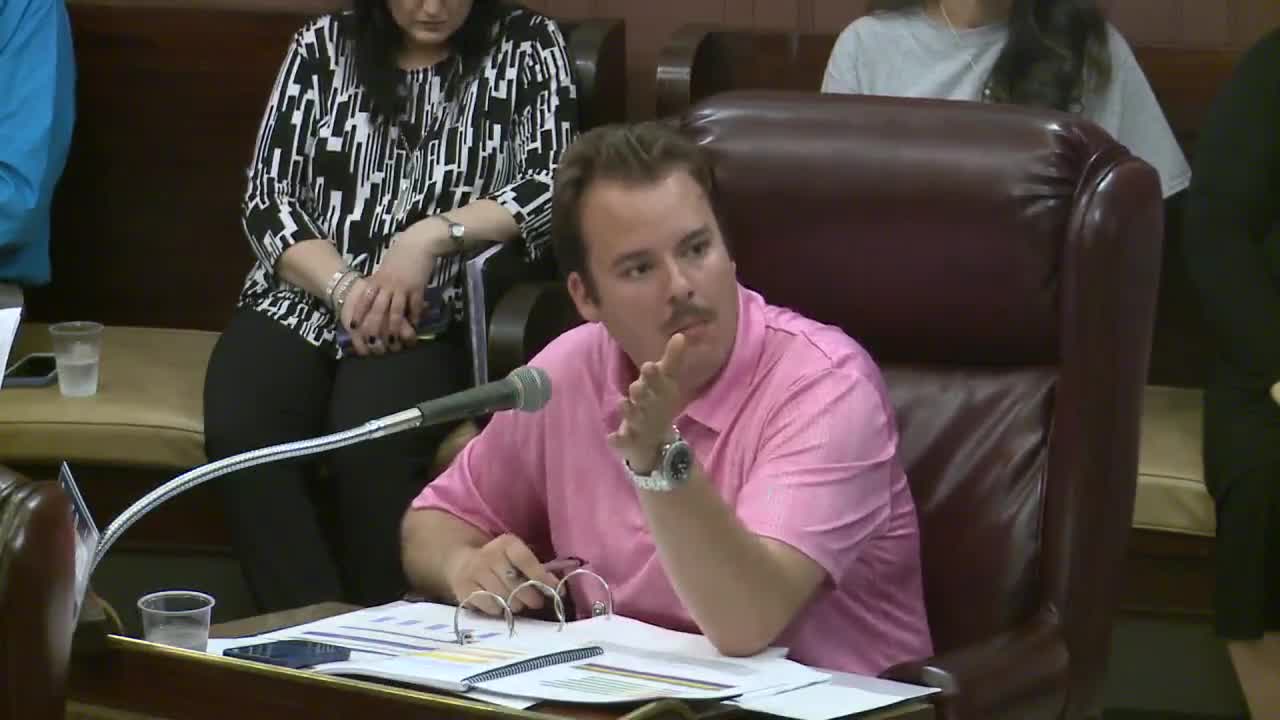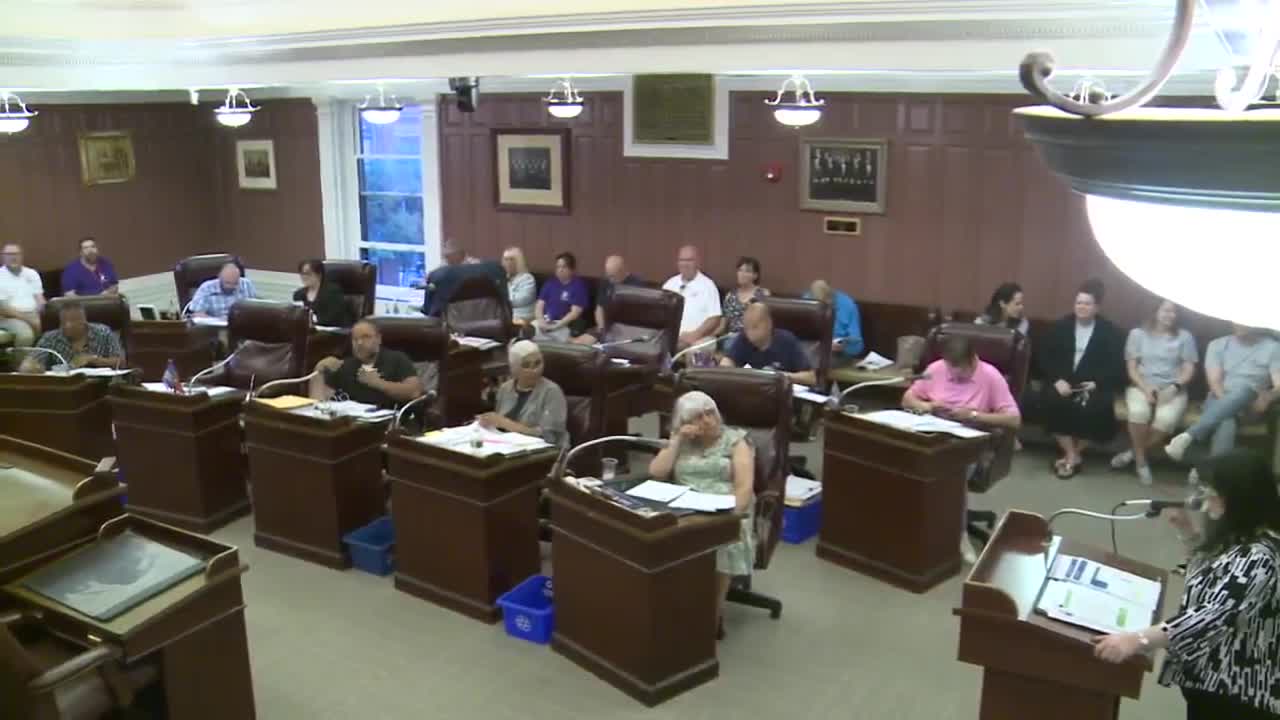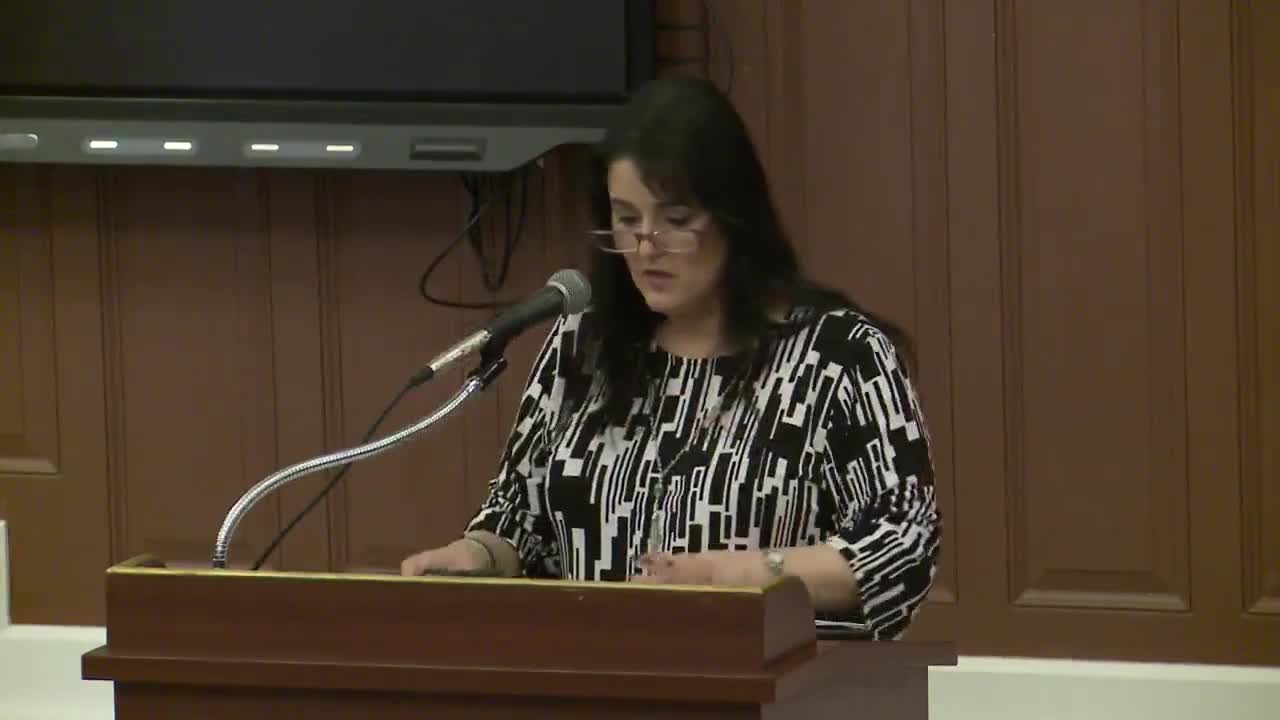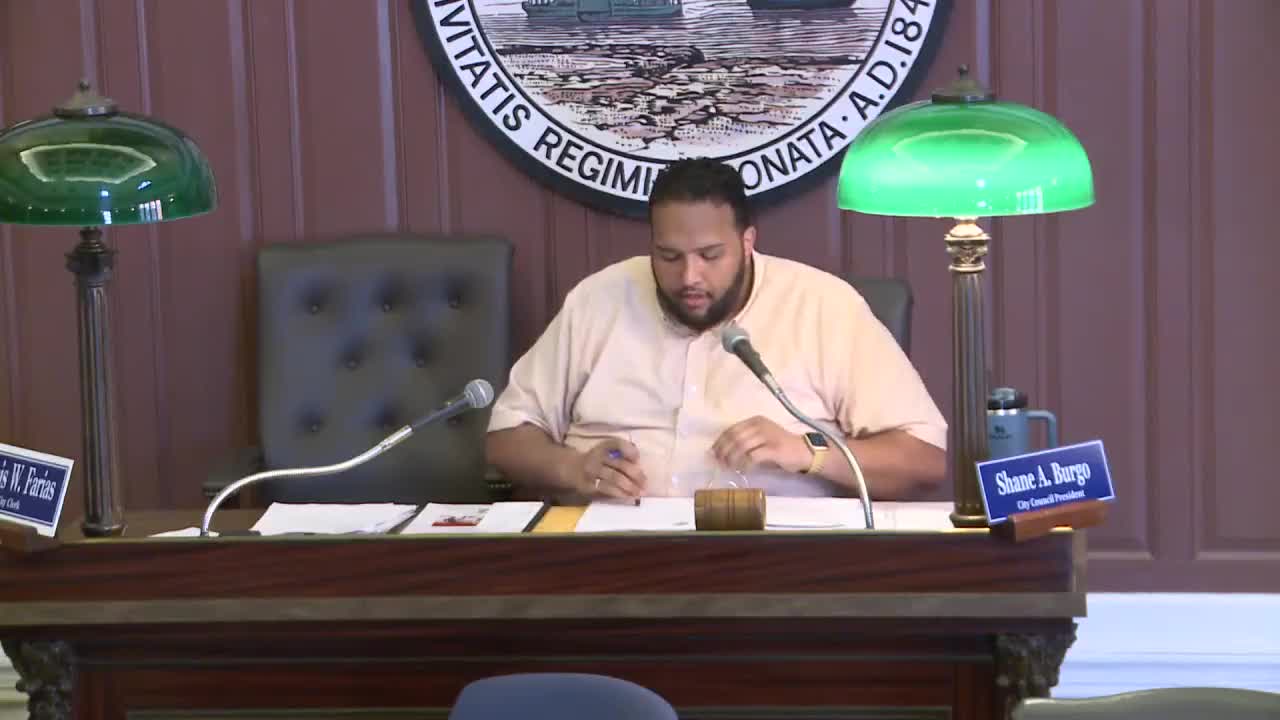Article not found
This article is no longer available. But don't worry—we've gathered other articles that discuss the same topic.

Superintendent presents FY26 school budget; Student Opportunity Act funding used to rebuild staff and facilities

Ziterion Theater moved to its own cost center; council questions taxpayer support for renovation and utilities

City budget includes three-year solid-waste contract and new line items for abandoned campers, carts and consultant

